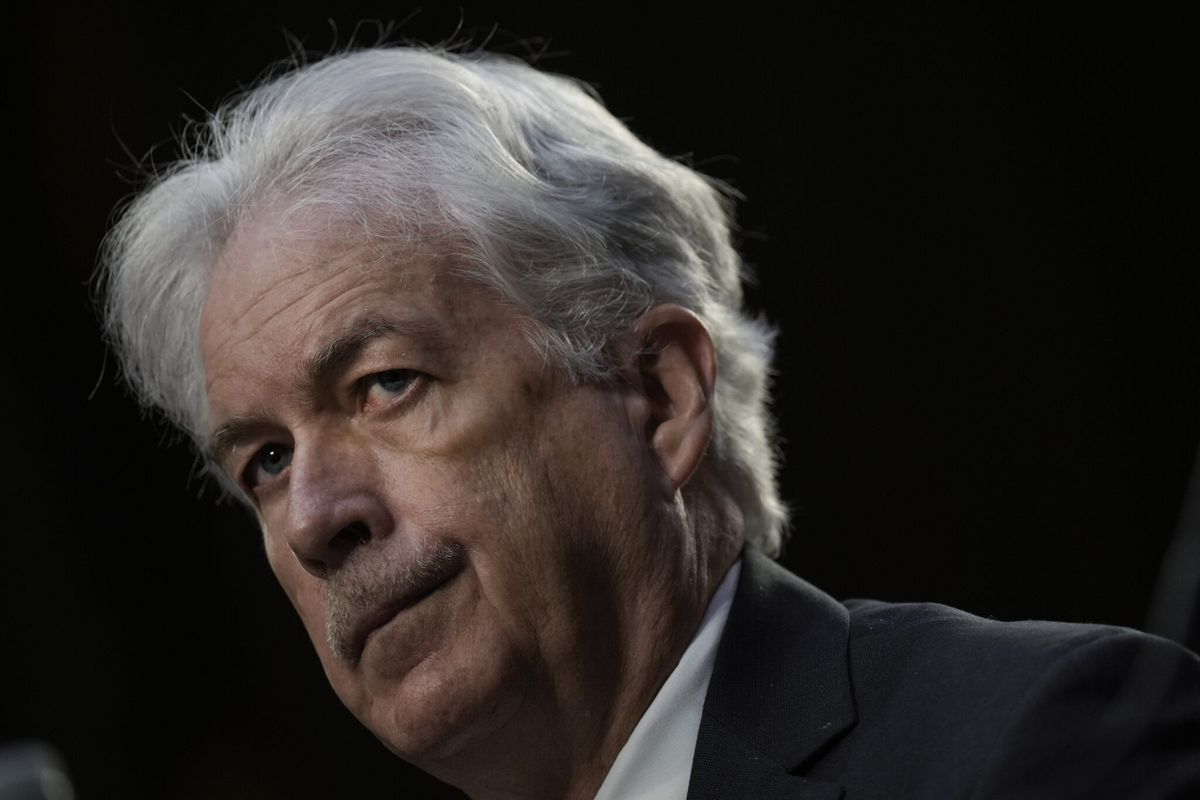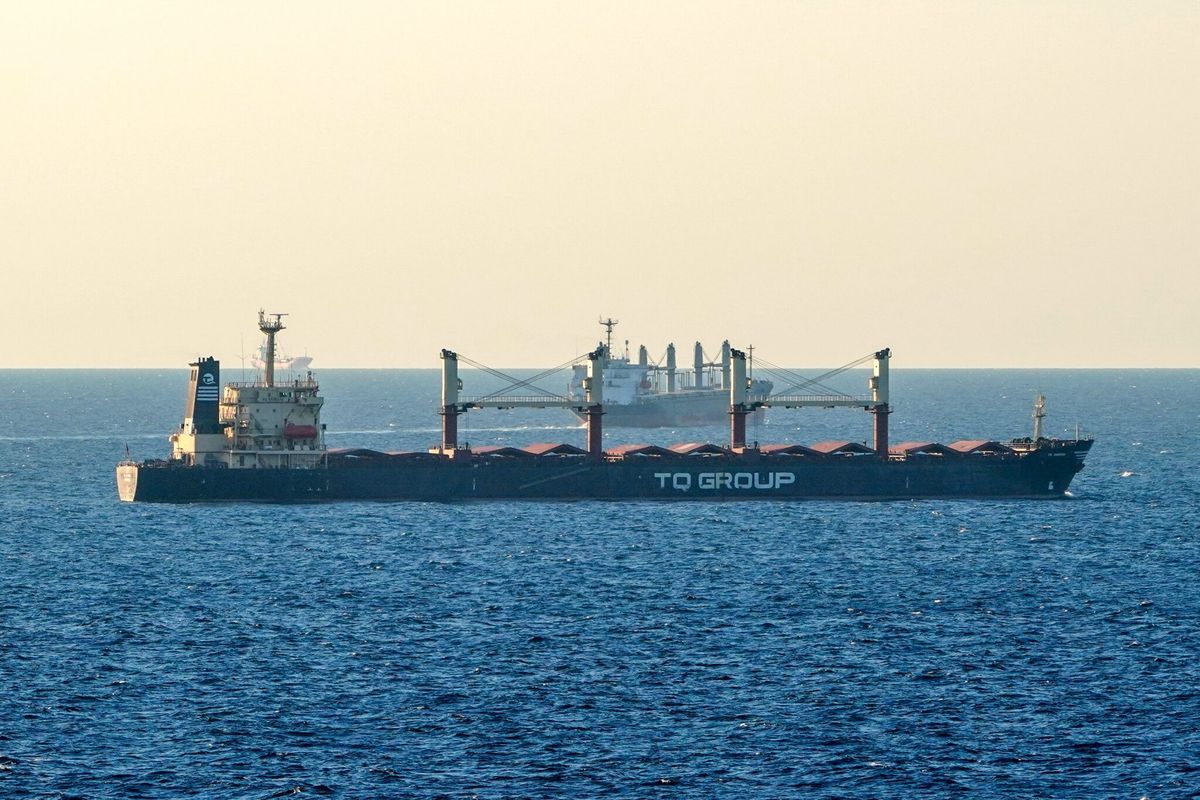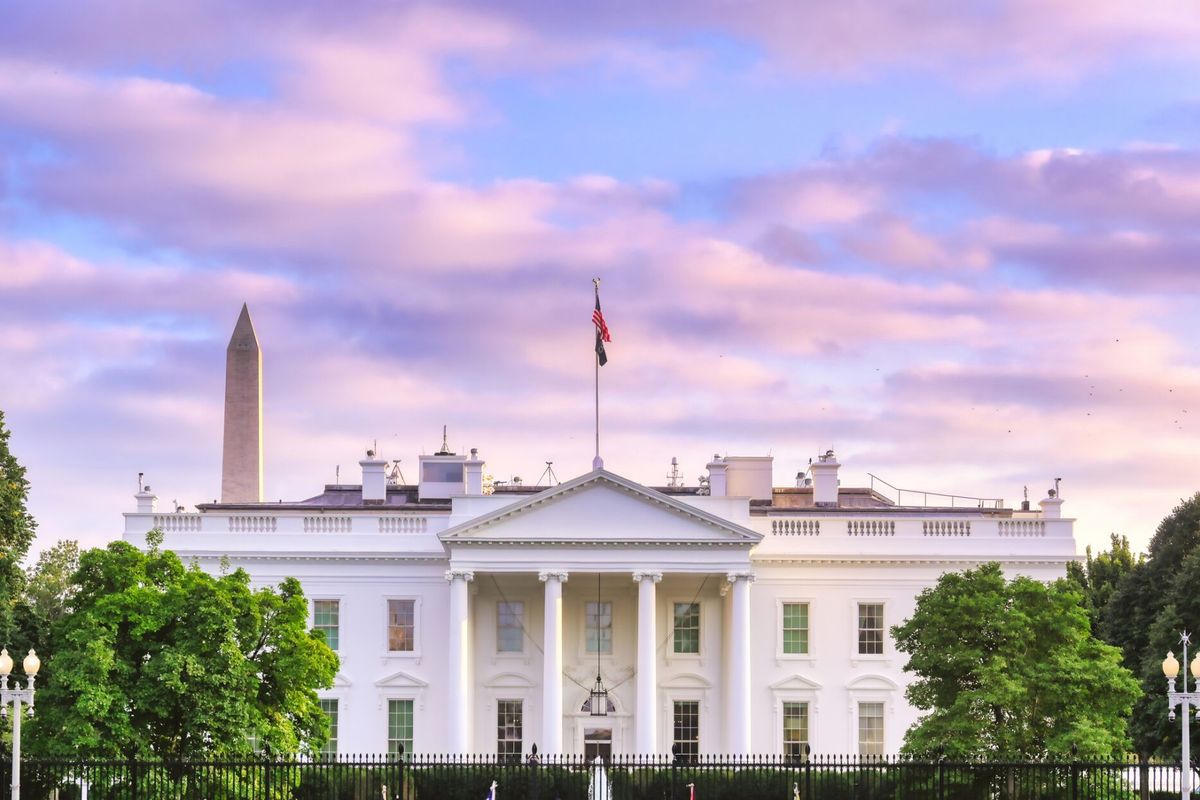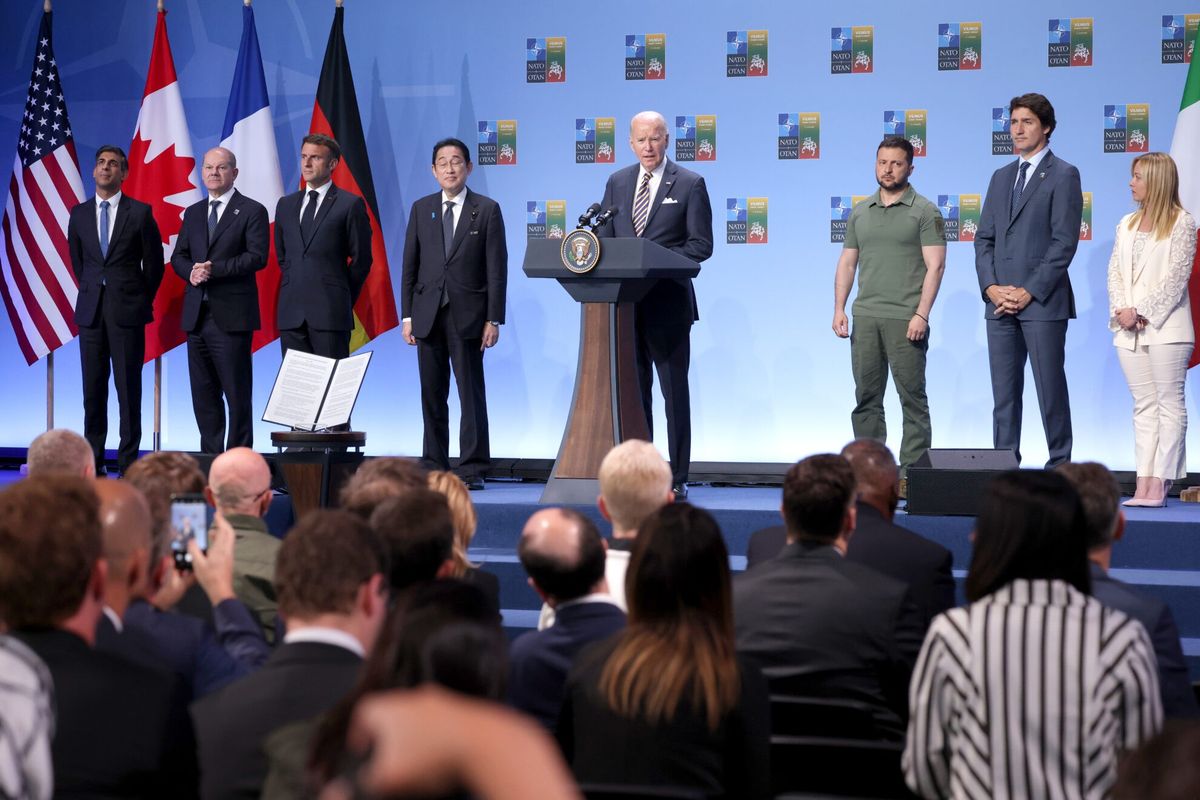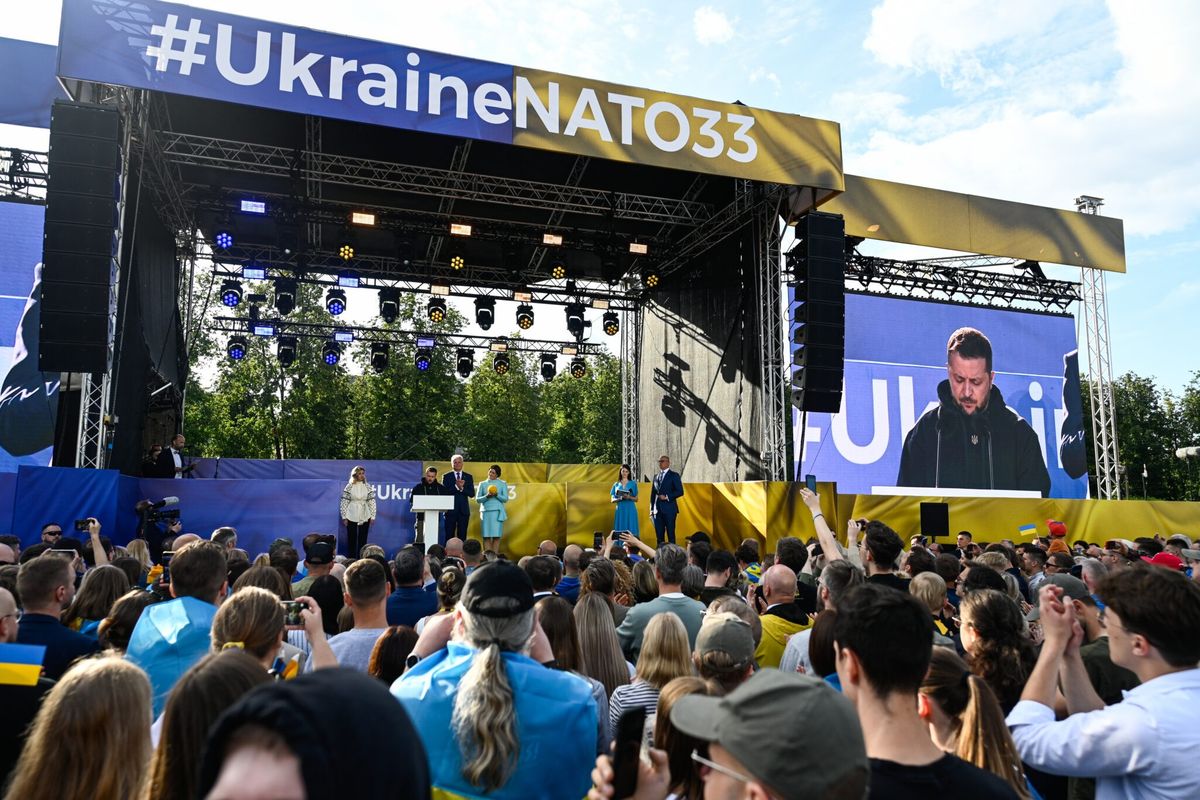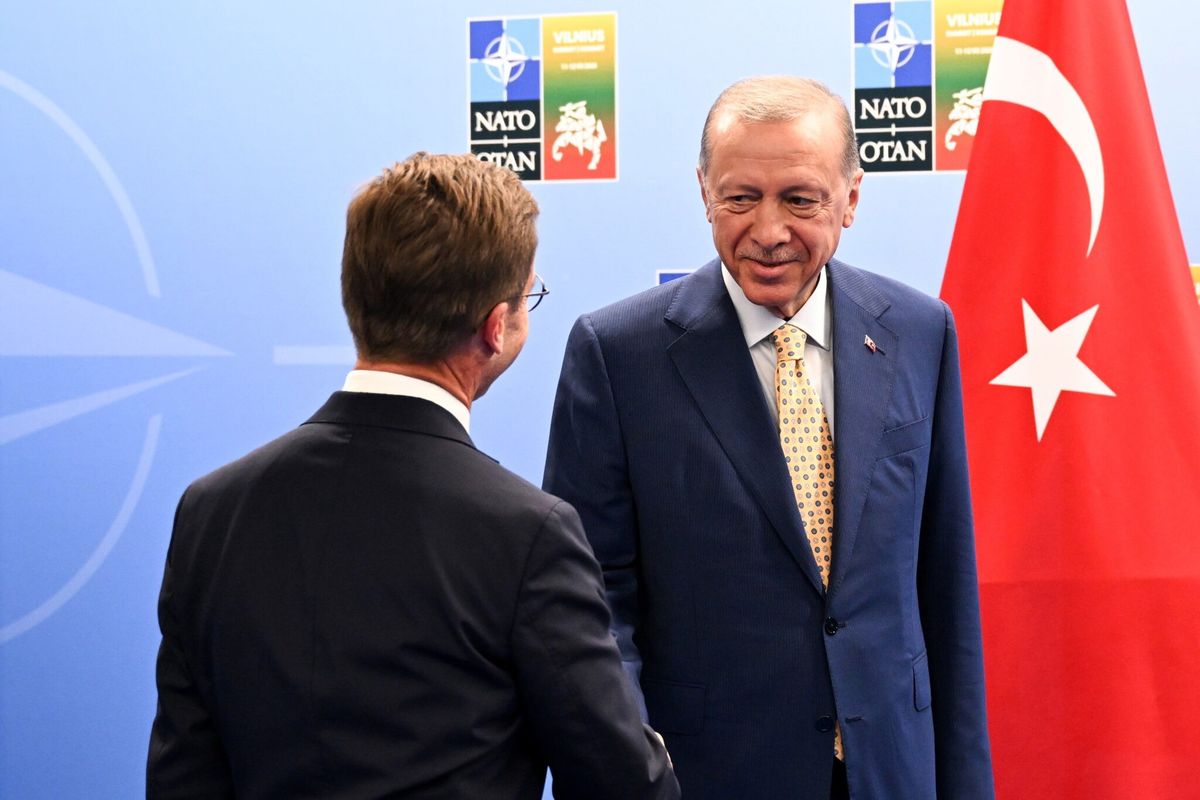Subscriber+Exclusive Interview — With Ukraine’s unmistakable blue-and-yellow colors now flying atop the rubble of the newly liberated village of Neskuchne in Ukraine’s embattled Donetsk Oblast, the initial push of a much-anticipated counteroffensive against Russian positions is apparently beginning to yield results.
The Cipher Brief was in Ukraine earlier this month to host The Cipher Brief's Kyiv Economic and Security Forum with General David Petraeus (Ret.), who cautions against the expectation of quick results.
“The early days, perhaps weeks, [of the fighting] will be hard,” he told The Cipher Brief's State Secrets Podcast. “I am relatively optimistic about what the Ukrainian forces will achieve over time, given both the enormous training they've had and the new systems" ... but he also said if the fighting takes shape in urban settings, Ukraine is "going to take losses."
“Western systems are [also] certainly not immune to anti-tank guided missiles from the Russians," he told us. "There will be very tough moments.”
In an interview for Subscriber+Members, the retired general and former CIA director offered his insights into the nature of the counteroffensive, insights from his conversations with top leadership and his views on what is needed now to boost Ukraine's post-war economic prospects.
The conversation has been lightly edited for length and clarity.
General David Petraeus (Ret.), Former Director of the CIA

General David Petraeus (US Army, Ret.) served over 37 years in the U.S. military, culminating his career with six consecutive commands, five of which were combat, including command of the Multi-National Force-Iraq during the Surge, U.S. Central Command, and Coalition and U.S. Forces in Afghanistan. He subsequently served as Director of the CIA. He is now a partner at KKR and chairs the firm’s global institute.
THE INTERVIEW
The Cipher Brief: You visited Kyiv and engaged in meetings with senior leaders in the country. What were the things that struck you based on those conversations?
Petraeus: The extraordinary national unity, extraordinary resilience, resourcefulness, determination, creativity and entrepreneurship of the Ukrainian people. I was very, very impressed by the qualities on display in Kyiv and reports of the same on the front lines as well. Based on our trip to Bucha and Irpin, north of Kyiv, which were the sites of horrific reprehensible Russian war crimes - there's no other description for what took place there - the horrors of what Russia has inflicted on Ukraine were very evident. That was also the case in some of the locations within Kyiv where the damage was so great from various bombings and missile strikes, that the destruction has still not been repaired.
The Cipher Brief: You were there amid high anticipation of the launch of Ukraine's counteroffensive. How do you think the initial phases will shape up?
Petraeus: There are several different locations in which the counteroffensive is being pursued, two in the southeast, one in the south, and the one around Bakhmut interestingly, is going quite well. The one in Zaporizhzhia has had a bit tougher start, but I'm not sure we've really seen the main effort revealed yet. Certainly, there are western tanks and infantry fighting vehicles being employed in the south. But again, there are reportedly from the Ukrainians, six to nine new brigades worth of armor and western infantry fighting vehicles, and other systems. We've seen just a small portion of that. It's not clear where the main effort will be, if there is indeed a really clear main effort. I would suspect there will be. But what we're still seeing is the very early days of the counteroffensive. We're seeing a variety of probing attacks, reconnaissance and force, setting of conditions and all the rest of this - shaping operations - as the terminology goes. Not yet the true main effort.
I would just caution that while I'm relatively optimistic about what the Ukrainian forces will achieve over time, given both the enormous training they've had and the new systems, and given the fact that the Russians have been in combat for 12 to 15 months in many cases, individual replacements that aren't well-trained, not well-equipped, and they're certainly not well led. All of that notwithstanding, the early days, perhaps weeks will be hard.
The rule of thumb is that you need three-to-one, at least five-to-one (advantage). If it's in an urban setting, there will be some of those advantages over the enemy and you're going to take losses. Western systems are certainly not immune to anti-tank guided missiles from the Russians. There will be very tough moments.
I reflect back on what I told the Senate Armed Services Committee in late January of 2007, before we launched the surge in Iraq. I cautioned that it was going to get much worse before it got better. There will be tough casualties. There will be setbacks as well as successes. But inevitably, I think the Ukrainians are going to achieve considerable gains in liberation of their soil, and hopefully that will include being able to halt the ability of the Russians to resupply Crimea across the southeastern portion of Ukraine and to cut the ground line of communications that they've been able to establish by the actions they took early last year.
Follow Cipher Brief CEO & Publisher Suzanne Kelly on LinkedIn and Twitter for exclusive behind-the-scenes images from the delegation’s visit to Kyiv.
The Cipher Brief: The Ukrainians have been clear that they won't consider victory achieved until they retake Crimea. How likely is that, or is it too early to tell?
Petraeus: It's still too early to tell. I think it's unlikely to be among the objectives, much less among the achievements, of this particular counteroffensive. There's a lot of territory they need to retake. It would be great if they could get close to the demarcation between Crimea and the rest of Ukraine, noting of course, that there's a body of water that separates most of that. And it would be great if they can get within range of the various headquarters, air bases, naval bases, logistics depots on the Crimean Peninsula that have been important in supporting the war effort for the Russians in the south.
And it would be even greater if we would provide the Army Tactical Missile System (ATACMS), especially now that the UK has provided the Storm Shadow, a longer-range precision missile system that will enable the Ukrainians to hold at-risk all of the Russian held locations in Crimea, and obviously to destroy a number of them and then perhaps if you can begin to isolate Crimea, including inflicting more damage to the Kerch Strait bridge, all of a sudden you change the overarching dynamic. Perhaps at that point, Russia might start to realize that this war is not sustainable. They might realize that they're not going to be able to outsuffer the Ukrainians, the Europeans, and the Americans the way they think, and they may come to the table and have meaningful negotiations on how to resolve this war.
The Cipher Brief: Some of the weapons you just mentioned, ATACMS as well as F-16s, are being talkaed about more urgently now in Washington. Do you believe they will eventually be sent to Ukraine?
Petraeus: I certainly hope so. There’s a limited number of some of these munitions. It's also perhaps why the dual purpose improved conventional munition (DPICM) should be part of that package. There are a lot of those available. I hope that we will push our NATO allies to provide a very solid guarantee to Ukraine about continued security assistance, even as the path to NATO membership is sketched out. It's understandable not to anticipate that there's a fast track to NATO membership for Ukraine until the war is resolved, but certainly a guarantee of some type about continued assistance in the interim and a firm commitment to eventual NATO membership is very important and will be a very important topic at the upcoming NATO summit in Vilnius in July.
While the US support has been extraordinary - and I think the Administration and Congress deserve a great deal of credit, $38 billion worth of arms ammunition and other material is just staggering - it's almost incomprehensible. Two million rounds of 155 millimeter Howitzer ammunition. Keep in mind, you can only put about 43 or so in a standard five-ton truck that's not configured for this. It's just mind-boggling. But there have been some decisions that have taken too long. ATACMS is a good example. Western aircraft is another one. The M-1 tank release was an earlier one because of course, the Germans weren't going to release them until we agreed.
It's been interesting to watch the role of the UK in all of this because they have often been willing to take decisions in advance of the US to put small numbers of a certain type of munition or capability on the ground. We then watch and see what the reaction is and nothing happens, so we then pile on vast numbers of that kind of system or munition.
The Cipher Brief: You had the opportunity to meet with President Zelensky while in Ukraine. What was top of mind for him right now and what you were most interested in learning from him?
Petraeus: NATO membership and the path to it was very much top of mind for him and his national security advisor. The other issue that was very interesting that he highlighted was in response to my question about one of the world's biggest investment firms, KKR. I asked how he could use this moment of national unity as a catalyst to address the issues that have prevented Ukraine from being essentially investible in the past and how he could create a magnetic attraction where everyone's competing to be in Ukraine, instead of pausing and not putting money to work.
In the past, there has been legislation on virtually every one of these issues that he was elected to reform or to address. Again, rule of law. He pointed out that they've just arrested the Chief Justice of their Supreme Court equivalent, and are addressing issues in which single companies or oligarchs dominate a sector and have monopolistic powers. Apparently, legislation passed on that regarding land reform, although the president pointed out that it's difficult to implement land reform when so much of the land is mined. He addressed each of these topics and I found that very, very impressive because I'd not heard that before. The focus has typically been on security issues, the latest military operations, now the offensive and so forth, so that was quite heartening. And I think using this unique moment of national unity is important because as you know well, in the past, politics in Ukraine has been almost a contact sport. And the fractious nature of that has been problematic, not the least with the color revolution and then the toppling of one of their leaders. This was very significant. We'll now watch to see if this is truly operationalized and if these changes - the laws and so forth - are truly institutionalized. If all of this comes to fruition and the war has ended on good terms for Ukraine and there's a Marshall-like reconstruction program and a security guarantee, Ukraine is going to become a very attractive country for outside investment.
It pays to have Subscriber+Member Access. Read the exclusive intelligence report from former senior member of CIA's Senior Intelligence Service Paul Kolbe as he shares perspectives on Ukrainian drone strikes deep inside Russia, Moscow's Plan B and NATO's looming challenge ahead of the Vilnius summit.
The Cipher Brief: That’s essentially the reason why the Cipher Brief made the trip to Kyiv to host more than 50 American professionals and more than 80 of their Ukrainian counterparts to engage in conversations around the idea of shoring up security and planning for the recovery effort, which of course, must include a robust investment landscape.
Petraeus: Let me just very quickly interrupt and say, congratulations on doing this. I know what short notice you had to pull this together. I think it was less than a month, and I was astonished at the number of US and western business leaders and investors and entrepreneurs who showed up. Again, in a city that was being hit every single night - and on several of the days of the forum - by multiple drones, swarm and missile attacks, it was really very impressive.
I've been going to Kyiv since it was still part of the Soviet Union. I was carrying the bags for the first chief of staff of the Army to visit the USSR since George C. Marshall went to Yalta. It turned out it was a bit before the Soviet Union collapsed, although it wasn't entirely clear that that was going to happen at that time. But to see how Ukraine has evolved over those years has been very impressive. If these reforms can truly be institutionalized, then this is a country that is going to be very attractive for outside investors. You saw all the natural resources, the human resources, the human capital, and again, the spirit of entrepreneurship and innovation. All of these are very impressive.
The Cipher Brief: Most people generally assume a nuclear confrontation is an unlikely scenario. And yet the talk of potential escalation has been constant in this war, especially in the wake of the Nord Stream attacks, and the destruction of the Kakhovka Dam. Are you worried that this could escalate in areas beyond what we're seeing right now?
Petraeus: There are any number of possible ways that Russia could try to take more unsettling actions, create more drama, get the Europeans and the Americans worried. This is why they've rattled the nuclear saber. Although obviously, the threats to use nuclear weapons have been empty so far, thankfully, and I think will be going forward. The most important element of deterring them from doing this has not been Jake Sullivan, our National Security advisor, warning that the consequences would be catastrophic. But actually, Putin's partner without limits supposedly, Chinese President Xi Jinping, and also Prime Minister Narendra Modi have both cautioned formally and publicly Russia against thinking about using nuclear weapons.
These voices have conveyed to Russia that they would end up in a worse place if they use tactical nuclear weapons instead of where they are right now. They'd be digging the hole deeper, but there's a variety of other actions they can take, damage to certain infrastructure just as they reportedly or apparently blew up the dam. To blow up something as large as that with as much concrete, presumably as much rebar and everything else in there, takes enormous munitions and precision. And this seems to have been something that was blown up from within. It's publicly known that the Russians did that last year.
There are undoubtedly other actions like that that they could take that will appear equally horrific. And could again stoke concerns, fear, apprehension, and so forth, noting that of course, what Putin is still banking on is that the Russians will be able to outsuffer the Ukrainians, the Europeans, and the Americans. What we need to do is everything humanly possible - together with our allies and partners, not just in Europe, but all around the world - to persuade Putin that this war is unsustainable in the same way that the USSR leaders came to realize that Afghanistan was unsustainable and to again come to the table to negotiate a resolution and put an end to this horrible unprovoked and brutal war on Ukraine.
The Cipher Brief: While we were in Kyiv, there were drones that were flying over Moscow, some believe that Ukraine was behind it. I wonder if this could be a tactic that you think might going to continue?
Petraeus: The Ukrainians are very careful only to target military targets. So, they are adhering to the Geneva Convention, the law of land warfare. I actually had a discussion with some of their leaders about that and how important it is that they observe the Geneva Convention in contrast to Russia, which of course, is flagrantly on a daily basis, violating it and seems to have a culture almost of committing war crimes rather than trying to prevent them.
I really don't have details on the source of the drone attacks. Obviously, we all have certain suspicions. There were hints that this could continue. And certainly the Russian Legion, and these other essentially ethnic Russian elements that are attacking into Russia from eastern Ukraine, particularly in the Belgorod Oblast of Russia. They're striking from Ukrainian soil and it's inconceivable they could do that without, not just tacit approval, but active support of Ukrainians.
What these episodes reflect is the very real possibility that Ukraine can also carry out activities that can undermine support for the war in Russia, because it brings the war home to them. They may not use western provided munitions for this. They've publicly said that they would not do that again for fear of some kind of escalation. It's just not right to pressure Ukraine not to attack into Russia, given what Russia is doing to them. When it comes to the possibilities of various actions of either side that could be unanticipated, I think that can go both ways.
The Cipher Brief: Was there anything that surprised you about this trip?
Petraeus: I was quite inspired, frankly, by the way the Ukrainian people and the citizens living in the Capitol of Kyiv seemed determined to go about their normal daily lives. During air raid sirens, certainly they would typically go inside into air raid shelters, or at least indoors of substantial buildings. But they weren't going to let this stop normal daily life, going to work, but also even going to restaurants. The streets were full of people. The vibrancy of the capital was remarkable, in contrast to the sense that you get from watching international news. I turned on the TV in the hotel a couple of times, and it was being portrayed like we were in the middle of the blitz or something. Yes, sirens were going off in the middle of the night, which isn't the greatest thing for sleep but everybody just soldiered on going about their daily lives. They were denying the Russians the satisfaction of keeping them from doing what they need to do and frankly, what they want to do. It's the spirit of the British indeed when Great Britain was under attack by the Nazis, spitting in the face of adversity and the enemy. I think that quality was very, very impressive and truly inspirational.
The Cipher Brief: Is there a turning point in this war that you'll be looking for, given the counteroffensive is now underway?
Petraeus: Gains on the ground are very, very important. Not just the Ukrainians, but the whole world, the Free World, the world that embraces the values that Ukraine aspires to exhibit, has a lot riding on this. If this offensive succeeds, not only will there be more of their soil liberated with physical gains on the battlefield, but it will be very uplifting for those who have been providing vast sums of money in the form of security and economic assistance. I can tell you from the surge in Iraq, that nothing succeeds like success. And when violence was ultimately down by between 85 and 90%, all of a sudden there were a lot more people on Capitol Hill that professed to having supported the surge in the first place than certainly were around when we were launching it.
The battlefield really matters. They have to achieve gains. They have to demonstrate that these investments will provide a substantial return. And then, the resulting conviction that this can succeed will create new dynamics. That’s particularly important. If they can get close to the territorial demarcation of Crimea and hold those bases at risk and target many of them, that matters because only then might Russia recognize that this war is just not winnable. And not only that, it's not sustainable. Of course, we need to take further action on the Russia front by tightening and ratcheting down more of the personal economic and financial sanctions and export controls to compliment what it is that we're helping Ukraine do on the battlefield.
No time to read? Listen to General David Petraeus’ (Ret.) interview in this week’s State Secrets Podcast, available wherever you listen to podcasts.
The Cipher Brief: We talked a number of times about innovation and how what Ukrainians are doing right now will create an innovation hub comparable to Israel, not only in military technology, but broader technology. What are your thoughts on that?
Petraeus: If they can get the Marshall-like reconstruction program funding, then the future is extraordinarily bright. This is a country that an awful lot of people characterize as the ultimate MacGyver country. They can make anything work. They can recover Russian tanks off the battlefield with a tractor and get them operational again. They're repairing our systems - western systems - in their depots rather than having to haul them all the way west to Poland or other countries.
They're well known already for IT skills. A number of startups in Silicon Valley actually trace their roots to Ukrainian Americans. And they have a large number of engineers. They're producing really talented college and university graduates. They have some very impressive universities. They have all the elements for a real resurgence in their economy and they have very low labor costs. If you can stop the war, get this security guarantee and get the reconstruction going, then I think the opportunities in Ukraine are really going to be very, very, very impressive.
Read more expert-driven national security insights, perspectives and analysis in The Cipher Brief because National Security is Everyone’s Business





